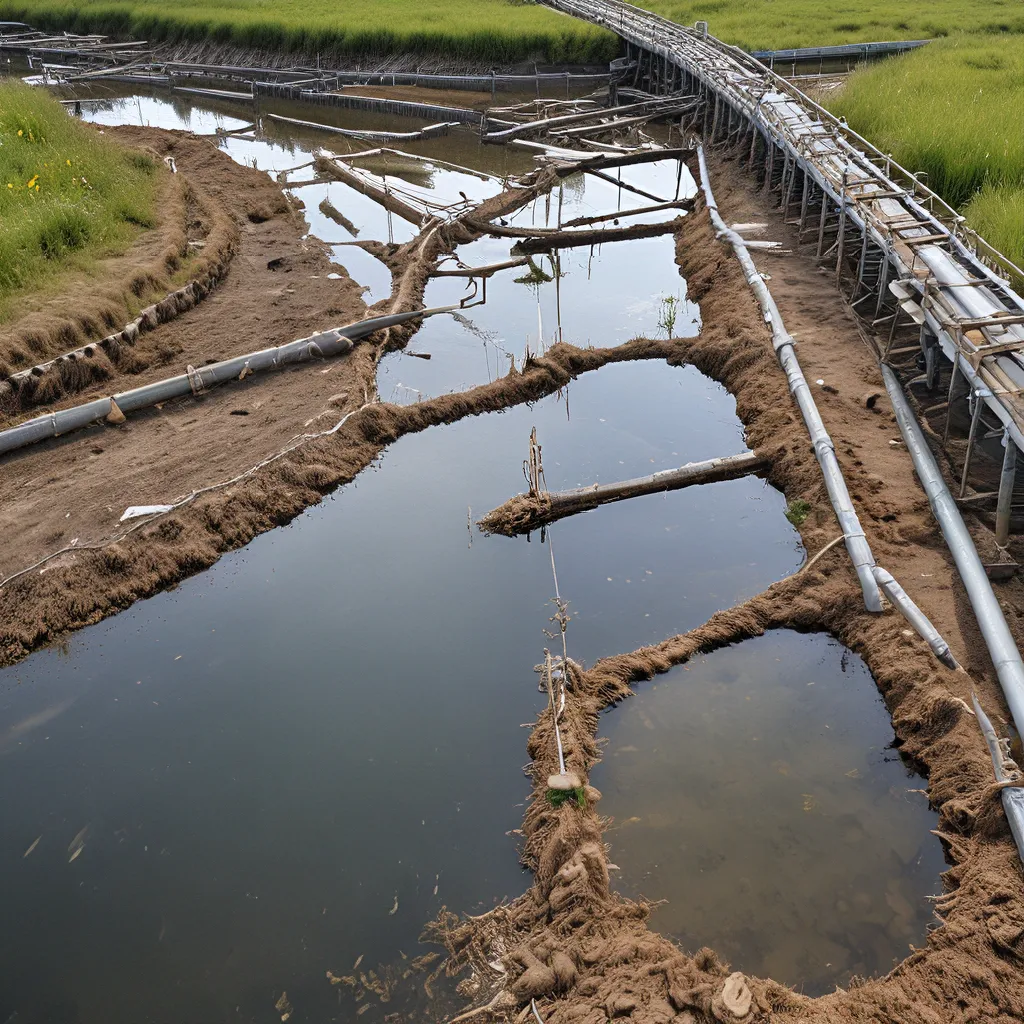
Hold on, folks! Are you ready to dive into the exciting world of wastewater treatment and its connection to the bioeconomy? Buckle up, because we’re about to embark on a journey that’s going to redefine the way you think about our precious resources.
You see, wastewater treatment is no longer just about flushing away our dirty business. It’s become a crucial player in the bioeconomy, a realm where we harness the power of biology to create sustainable solutions. And let me tell you, the possibilities are mind-blowing!
Wastewater: A Treasure Trove of Untapped Potential
Think about it – every time you take a shower, do the dishes, or flush the toilet, you’re contributing to a vast, interconnected system of wastewater treatment. But what if I told you that this wastewater is actually a goldmine of untapped potential? Yup, you heard me right!
The European Commission has been leading the charge in exploring the bioeconomy – the concept of using renewable, biological resources to create a more sustainable future. And guess what? Wastewater treatment is a key player in this game-changing revolution.
Harnessing the Power of Microbes
You know those pesky microbes that we’re always trying to get rid of? Well, it turns out they’re actually the unsung heroes of the wastewater treatment world. These tiny little buggers are capable of breaking down organic matter, removing pollutants, and even producing valuable bioproducts. Talk about a hidden talent!
Imagine a world where we could turn our wastewater into a renewable resource – one that could power our homes, fuel our vehicles, and even create new biobased materials. It’s not just a pipe dream, my friends. The White House is leading the charge, setting bold goals for the US to harness the power of biotechnology and biomanufacturing to address key societal challenges.
Wastewater Treatment: A Pathway to Sustainability
But wait, there’s more! Wastewater treatment isn’t just about harnessing the power of microbes; it’s also about reducing our environmental impact and moving towards a more sustainable future. By recovering valuable resources from wastewater, we can decrease our reliance on fossil fuels and minimize the amount of waste we send to landfills.
And let’s not forget about the water recycling aspect of wastewater treatment. By purifying and reusing our wastewater, we can help address the global water scarcity crisis and ensure that we have a reliable source of clean water for generations to come.
The Bioeconomy: Unlocking the Potential of Wastewater
Now, you might be wondering, “Okay, this all sounds great, but how does the bioeconomy fit into the picture?” Well, my friends, the bioeconomy is the key to unlocking the full potential of wastewater treatment.
Recent research has shown that the bioeconomy can play a crucial role in transforming wastewater treatment into a sustainable, value-added process. By integrating wastewater treatment with biobased industries, we can create a circular economy where waste is turned into valuable resources.
Bioproducts and Bioenergy: The Dynamic Duo
One of the most exciting aspects of the bioeconomy is the production of bioproducts and bioenergy from wastewater. Think about it – we can take the organic matter in our wastewater and use it to create biofuels, bioplastics, and even biobased chemicals. Talk about a win-win situation!
And the best part? This biobased economy is not just a pipe dream. Companies like Alpha Wastewater are already leading the charge, using cutting-edge technologies to transform wastewater into valuable products that can power our homes, fuel our vehicles, and even create new sustainable materials.
The Circular Economy: Closing the Loop
But the bioeconomy is about more than just bioproducts and bioenergy. It’s also about closing the loop and creating a truly circular economy. By recovering and reusing the resources in our wastewater, we can reduce waste, conserve natural resources, and minimize our environmental impact.
Imagine a world where our wastewater doesn’t just disappear down the drain, but instead becomes a valuable resource that powers our homes, fuels our vehicles, and even creates new biobased materials. It’s a future that’s within our grasp, and the bioeconomy is the key to making it a reality.
The Road Ahead: Challenges and Opportunities
Of course, transitioning to a bioeconomy-driven wastewater treatment system isn’t without its challenges. As the White House report suggests, we’ll need to invest in research and development, build new infrastructure, and overcome regulatory hurdles to make this vision a reality.
But you know what they say – with great challenge comes great opportunity. And trust me, the opportunities are endless. By embracing the bioeconomy and harnessing the power of wastewater treatment, we can create jobs, boost local economies, and contribute to a more sustainable future for all.
So, are you ready to dive in and be a part of this wastewater revolution? Because let me tell you, the future is bright, the possibilities are endless, and the time to act is now. Who knows, maybe one day we’ll be powering our cities with the very same water we flushed down the toilet. Stranger things have happened, my friends!